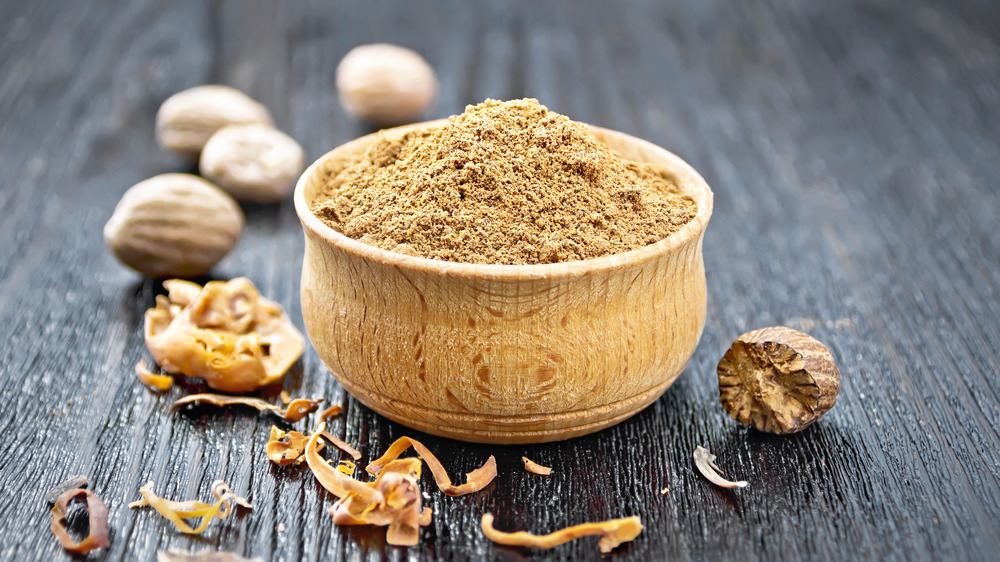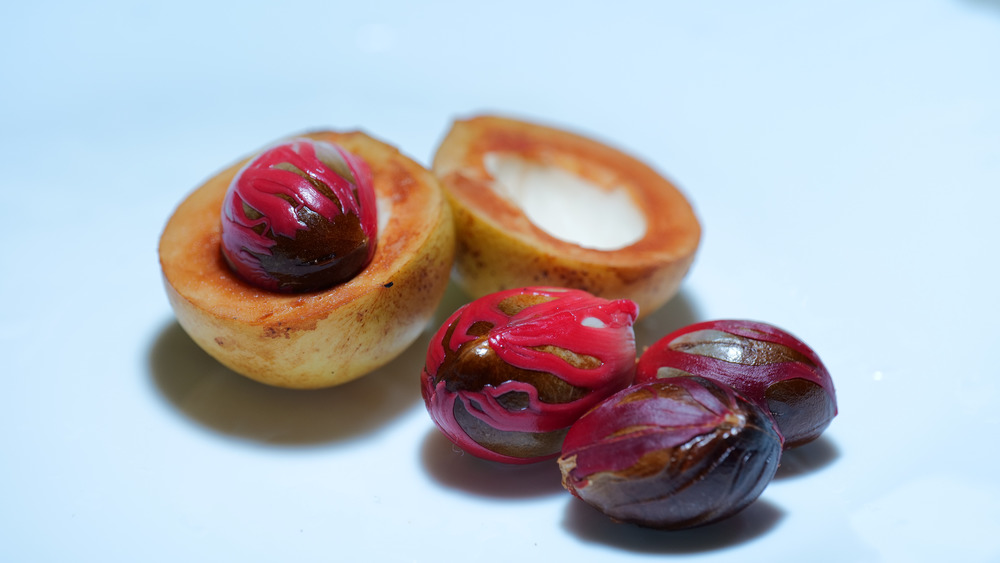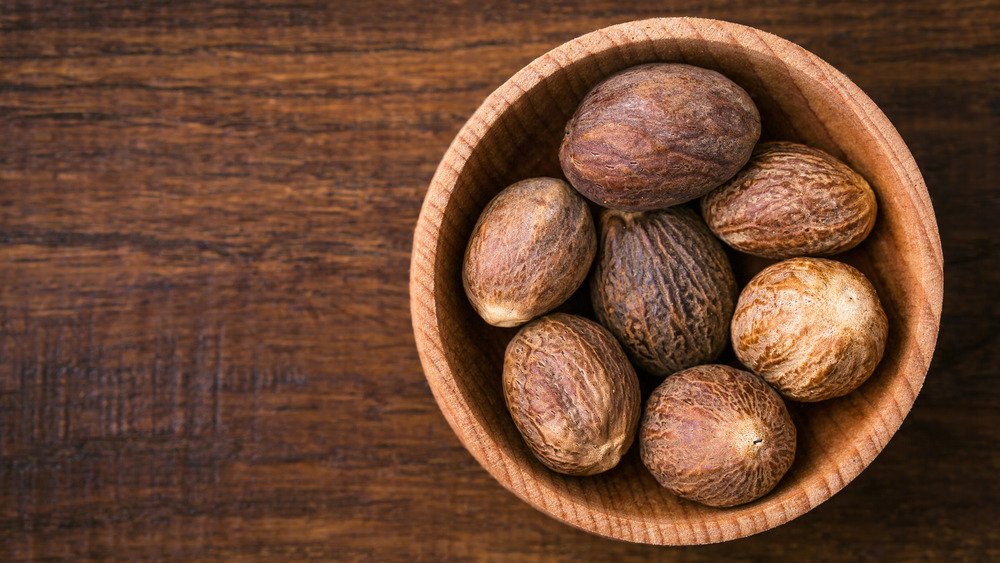What Is Nutmeg And How Do You Use It?
Nowadays, nutmeg is rarely ever the star of the show. Often relegated to a supporting role — sometimes in conjunction with cinnamon, sometimes a part of pumpkin spice, and so on — the spice is not often singularly celebrated or highlighted. However, its unique, subtle flavor lends itself well to a myriad of dishes, both savory and sweet. If you've ever wondered what exactly nutmeg is, you've come to the right place.
Healthline notes that nutmeg "is a popular spice made from the seeds of Myristica fragrans, a tropical evergreen tree native to Indonesia." Britannica relates that it is also grown in the West Indies, and OrganicFacts tells us that it's also presently grown in the Caribbean and Southern India. Furthermore, Grenada's official nickname is actually "Nutmeg Island" (via The Epicentre).
The word nutmeg "comes from the Latin nux, meaning nut, and muscat, meaning musky," says The Spruce Eats. It is sold as whole seed which can then be grated or shaved into various dishes, or as a ground, powdered spice. The powdered spice loses potency much quicker than the whole seed. It is not a nut, so don't fret if you have nut allergies; enjoying nutmeg shouldn't induce any reactions whatever. The nutmeg itself is actually the seed of an apricot-like fruit. Believe it or not, the "fleshy arils surrounding the nutmeg seed are the source of the spice mace," according to Britannica.
How do you use nutmeg?
Nutmeg is warming, slightly nutty, somewhat sweet, and it can have a subtle flavor for anyone especially heat averse, similar to cardamom or a very subtle black pepper. It is an important inclusion in spice blends like garam masala and ras el hanout. It pairs well with other "autumnal" flavors like cardamom, cinnamon, and clove, and is often associated with the holidays (think gingerbread) or as a warming garnish on hot drinks often consumed during the colder months (think pumpkin spice latte). It accentuates the inherent flavors in both cream-based and/or béchamel sauces, as well as the dark greens like spinach, kale, chard, and broccoli rabe. The spice of the nutmeg brings out the fresh, bright flavor of the verdant vegetables.
If using it to season a cream sauce or any dark green, just a touch is all that's needed — a little goes along way. It's also excellent as a garnish on many cocktails. Lastly, it pairs well with many types of cheeses. Clearly, there's versatility at work here.
In addition to its warm flavor, it also boasts health benefits. Throughout history, nutmeg was thought to contain incredible healing capabilities. Healthline notes that nutmeg contains antioxidants, can reduce inflammation, can boost mood, benefit heart health, and control blood sugar. OrganicFacts also notes that it is helpful in lowering cholesterol levels, alleviating pain, helping digestion and sleep, and improving brain health. Nutmeg is also often used in teas, perfumes/colognes, and candle scents.
The history of nutmeg
That isn't new; the Romans used nutmeg in their incense centuries ago, as Britannica tells us. It is also important to note that consuming too much nutmeg, however, can cause adverse affects, and sometimes even result in "nutmeg toxicity."
In the 1500s and 1600s, the spice was a major driver in some of the tensions between countries and was a primary component in some of the wars of the time. NPR notes that "nutmeg has been one of the saddest stories of history," stating that the Dutch "tortured and massacred the people of the nutmeg-producing Banda Islands in an attempt to monopolize the nutmeg trade." It's even said that when the Dutch and British were negotiating a trade, they wound up trading Manhattan (!) to "get nutmeg and sugar."
The Spruce Eats reports that nutmeg was once prized as a hallucinogenic. The Atlantic states that nutmeg "contains a psychoactive element called myristicin, whose chemical structure shares similarities with mescaline, amphetamine, and ecstasy." It was even said to induce the "sensation of floating" and sometimes cause hallucinations, which today we associate with nutmeg poisoning, and which (as we know now) can be very dangerous (but you must consume quite a large amount to be affected).
Clearly, the history, health benefits, and deeper meaning of nutmeg belies the subtle flavor of the aromatic seed.


